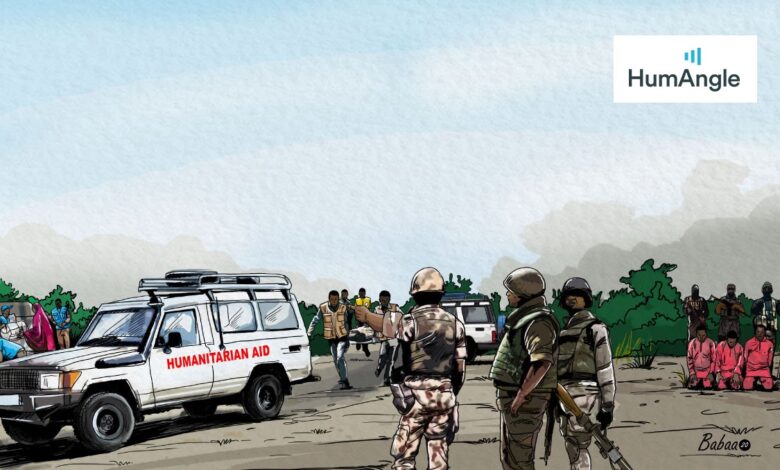Conflict Victims In Peril As Global Humanitarian Aid Dries Up — NRC
According to the Norwegian Refugee Council (NRC), lack of funding forces vulnerable populations into negative coping mechanisms like transactional sex, child labour, and early marriage.

The Norwegian Refugee Council (NRC) has expressed concern over the dwindling funding for humanitarian activities in conflict areas, saying the glaring global shortfall is leaving millions in desperate need of support.
According to Jan Egeland, the NRC Secretary-General, the widening gap between the need for lifesaving aid and the available funding highlights an alarming trend of international neglect in the face of growing humanitarian emergencies.
“At a time when the world is falling apart for millions of people, we are seeing an increasing trend of international neglect. I have never before seen such a glaring gap between the need for lifesaving aid and available funding,” Egeland lamented.
Halfway through 2024, the UN’s Office for the Coordination of Humanitarian Affairs (OCHA) reports that only 16 per cent of the total funding needed for global humanitarian response has been secured; that is about $7.9 billion out of an estimated $48.7 billion needed to address the most acute crises in 2024. It is also 18 per cent less than what was raised within the same period last year.
This vast shortfall, says NRC, is not only insufficient to meet existing needs but also portends a bleak outlook for the remainder of the year, with even more people likely to be left without any support at all.
“It is devastating that nations are able to send satellites to the far side of the moon but unwilling to prevent children from starving to death here on Earth,” Egeland stated, highlighting the moral and ethical disconnect between technological progress and the basic humanitarian responsibilities that are being ignored.
Globally, food and cash assistance programs are being cut. As humanitarian funding shrinks, NRC also reports a disturbing trend: refugees, desperate for survival, are returning to war-torn areas or resorting to risky coping mechanisms. Others are forced to sell their possessions, including essential farming tools, or engage in transactional sex and early marriage to survive. These negative coping mechanisms only perpetuate cycles of vulnerability and instability.
The lack of funding for humanitarian assistance is also compounded by cuts or suspensions in development aid in several countries. A recent NRC report documents how the suspension of development assistance, often triggered by political crises, exacerbates the situation.
“Suspension of development assistance in many countries affected by political crises means the root causes of crisis situations are not being addressed, while humanitarian funds are being exhausted responding to a multitude of needs. It is vital that development financing actors remain engaged,” Egeland emphasised.
A closer look at the distribution of funding reveals significant inequalities. In 2023, nearly half of the funding went to just five emergencies: Ukraine, Syria, Yemen, Afghanistan, and the occupied Palestinian territories. This left many other critical areas severely underfunded.
For instance, Burkina Faso received only 16 per cent of its Humanitarian Response Plan funding despite topping NRC’s list of neglected displacement crises. Other underfunded areas include Sudan (17%), Venezuela (10%), Myanmar (12%), Ethiopia (14%), and El Salvador (14%).
The report indicated that countries facing severe underfunding are often compelled to withdraw development aid, forcing overstretched humanitarian actors to fill basic services like health, education, water, and sanitation gaps. This additional burden on an already underfunded global humanitarian system leads to further deterioration of living conditions for vulnerable populations.
Support Our Journalism
There are millions of ordinary people affected by conflict in Africa whose stories are missing in the mainstream media. HumAngle is determined to tell those challenging and under-reported stories, hoping that the people impacted by these conflicts will find the safety and security they deserve.
To ensure that we continue to provide public service coverage, we have a small favour to ask you. We want you to be part of our journalistic endeavour by contributing a token to us.
Your donation will further promote a robust, free, and independent media.
Donate HereStay Closer To The Stories That Matter




